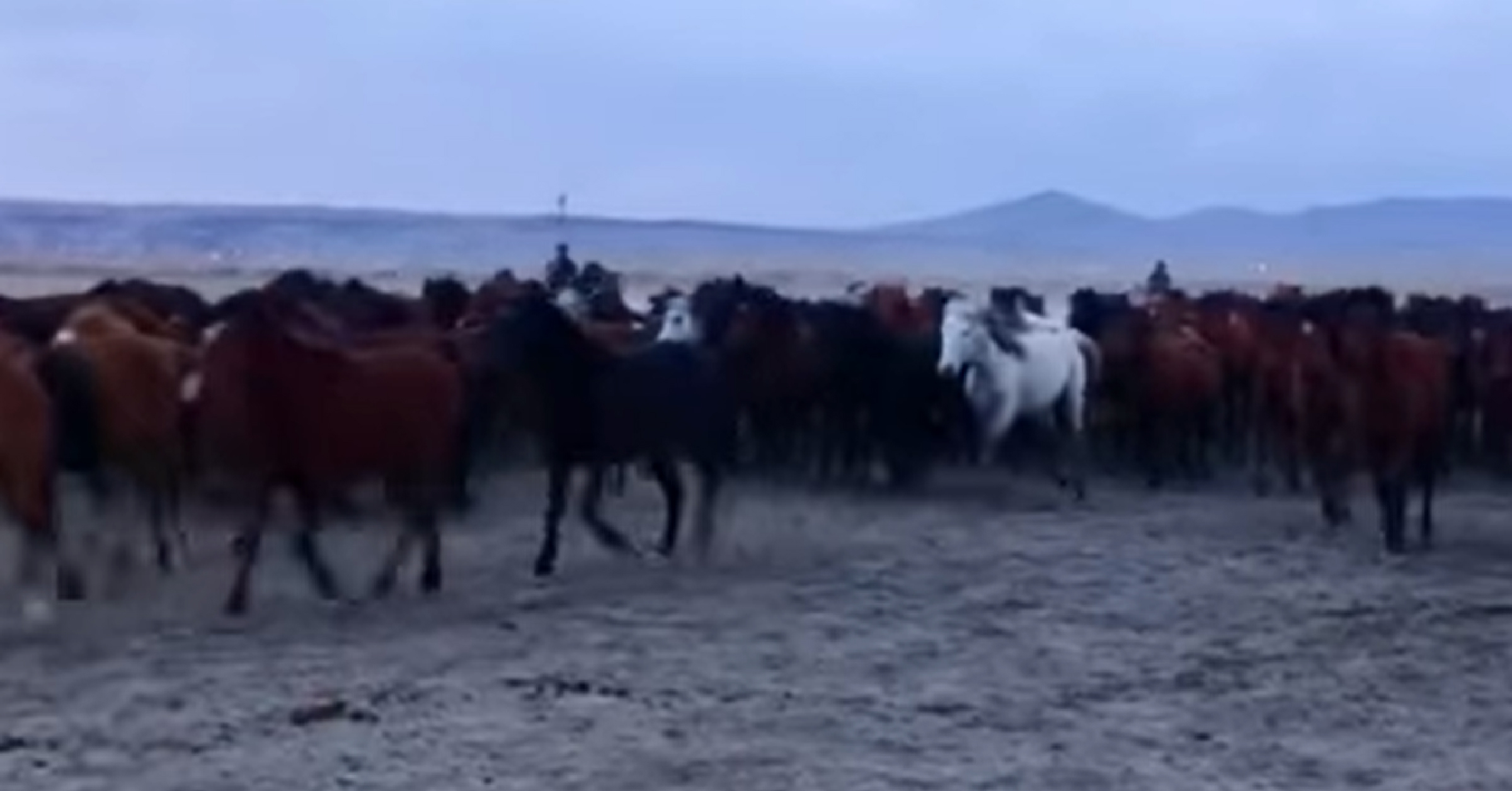Just take a look at this beauty in the video! Here’s something many of us probably didn’t know: the Turkish word Yılkı means “free horse living in its own environment”. The Yılkı Horses are hundreds of free, wild, noble, and gorgeous Anatolian racehorses that have been living in the center of Turkey for centuries. Most of them live nowadays around the village of Hürmetçi.
Thousands of other wild horses roam free on the mountains and plains of Turkey’s Anatolia region. They are the descendants of horses that farmers abandoned. These days, they can be spotted roaming in herds in several Turkish provinces, including Manisa, Mus, Kayseri, and Karaman.

Genuinely wild, feral horses should never be touched. Don’t approach a horse that is visibly irritated or kicking. Do not try to pet the horse at all if you’ve seen it kick, as it might injure you. You are also not allowed to catch and keep a wild horse. They are protected and owned by the Bureau of Land Management. Instead, you can contact them and ask to adopt a wild horse. But when you do adopt a horse, you cannot sell it for the first year.
You may think that these wild horses may have problems with the water in the wild or with their hooves. As for the water, wild horses do not drink brackish or saltwater. Freshwater is found under barrier islands in wide, deep lenses which fill surface pools, seeps, and digs. And as for their hooves, wild horses maintain their own hooves by moving many kilometers a day across various surfaces.

We also have a fact about food. The truth is that these beautiful creatures indeed are wild horses, and apples or carrots are not part of their regular diet (as for domestic horses). If they do eat those foods, they can get stuck in their digestive tracts, and if not treated, they can die.